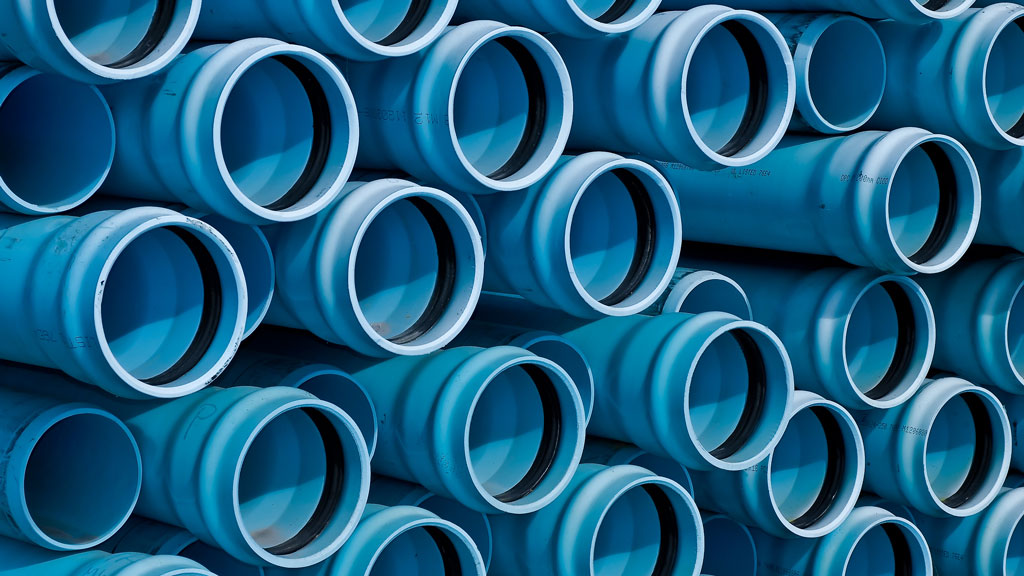When municipal watermains spring a leak, the traditional fix is to dig up the ground and replace the broken pipes.
However, Sault Ste. Marie, Ont.’s PUC Services Inc. is using technology to tackle the age-old problem.
A new robot-delivered pipe-strengthening technology is being deployed that fortifies and rehabilitates failing watermains. It could add 50 years to the life of a pipe and save the municipality tens of millions of dollars.
The technology, developed by U.K.-based Resimac, makes the pipe more resilient by putting a polymer inside of it as a lining.
“Traditional methods of replacement of this infrastructure can be very expensive, time consuming and disruptive to the neighbourhoods involved,” explains PUC Services president and CEO Robert Brewer. “For that reason, we were curious about innovations and advances in technology and in our research uncovered this exciting and innovative solution.”
The technology coats the interior of the pipe with a Spray in Place Polymer (SIPP) lining known as Resiline 320, so it has a clean surface.
“What we have moved towards more recently,” says Brewer, “is to strengthen the pipe in the ground by applying a polymer on the inside of it as a lining. This process coats the pipe, so we achieve a very clean surface, improving water quality, water flow, and it can add structural integrity to the pipe.”
SIPP is a growing technology that offers a new means of repairing corroded, leaking or damaged pipelines. A robotic device makes its way through a defective pipe and sprays a new line into place throughout the whole length.
The head of the device spins as it sprays the material on the original pipe surface. As the new interior line in the pipe dries and hardens, it forms a new pipe.
The process will allow the PUC to rehabilitate aging watermains without the time, expense and customer inconvenience of completely digging up the road, says Brewer.
“SIPP allows us to extend the life of the pipe by up to 50 years. It also allows us to fix a watermain in the same day. Previously it could take us up to several months to replace the watermains through traditional open-cut methods. This procedure allows us to achieve the same results, which is the safe life extension of the watermain in a significantly shorter timeframe, reducing the impact to our customers.”
When doing the work, the water is turned off and a cleaner is run through the watermain to remove any loose metals. The polymer is then run through the pipe and that same evening the water is turned on.
“This project will save PUC Services tens of millions of dollars over the next two decades as we address our own infrastructure needs,” says Brewer. “As a municipally-owned organization, our goal is to look for innovative ways to do everything we can to try and minimize costs to our water customers.”
The PUC recently tested it on 240 metres of pipe in the city and was impressed with the outcome. The work was completed in three days at a lower cost to comparable methods and disruption to customers was reduced.
“The test was a success in that it validated our estimated timelines and process, as well as visibly confirmed the expected lining quality,” says Brewer.
PUC services is currently awaiting the final test results of the lined pipe by the University of Waterloo, Centre for Advanced Trenchless Technologies to quantitatively assess the structural integrity benefit. The PUC intends to create a subsidiary to deliver a new pipe-strengthening technology across the province because other municipalities are also facing the same situation and are in need of replacing watermains.
“We are receiving a great deal of interest from water system owners and operators across the province,” says Brewer.
The PUC is presently developing agreements with Resimac and its Canadian distributor, Canadian Induracoat Corp. of Victoria, B.C. This summer, the utility expects to have a few smaller pilot projects in place.
In the coming years, the PUC hopes to be able to assist other municipal water system owners to solve some of their watermain challenges using SIPP.
“We know from several industry papers and consultation with our peers across Ontario that aging water infrastructure is a major concern throughout the province and throughout North America,” says Brewer.
The polymers used in the lining application are safe and approved through public health and the Ministry of Environment and Conservation Parks.
“The water treatment and water drinking industry are very highly regulated, and these products are rigorously tested,” Brewer notes. “We use polymers throughout our systems as new watermains. There is extensive use of safe polymer throughout the drinking water industry. This is just another example of a safe one.”







Noble pipe rehabilitation method but a misguided customer. Pipe coating is the same concept as coating a drywall with paint. The paint is only as strong as the drywall. If you have a history of pipe failures on that section, coating a weak pipe will not add any structural integrity. Do not be mistaken that the coating replaces the pipe. It has to work in conjunction with the weak pipe. So it is not a new pipe. It would he hard pressed to find any published documents verifying the life span of the coating. Hate to be PUC when the next watermain break or shifts on this section gets called in for repair -30 years of HDD/sliplining-